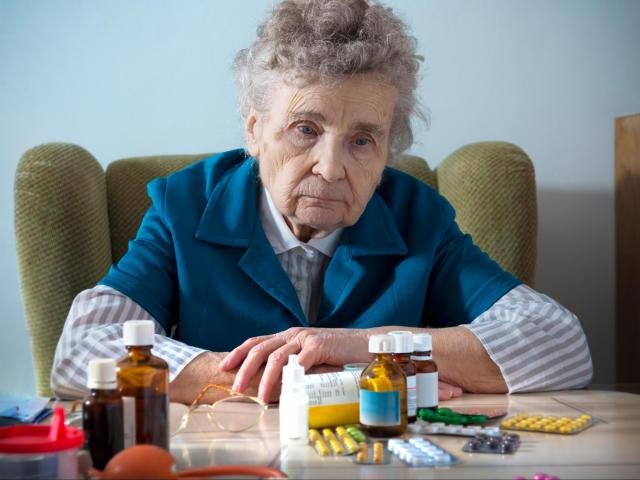All too often, when I visit a client in their home and ask about their medications, they bring out a Tupperware shoebox brimming with both prescribed and over-the-counter bottles.
Research has shown that the number of prescriptions people over the age of 65 take has doubled in the last twenty years due to a number of factors: we are living longer; we want a quick fix; one drug might have side effects that must be managed by a second drug; etc.
What’s worrisome is that research has also shown that the more medicines Mom or Dad are taking, the higher their risk of “adverse drug events;” in other words, side effects which can cause physical and/or cognitive impairments, some so serious as to require a trip to the hospital.
How many are “too many?” While it’s difficult to make generalizations, many studies seem to divide people into two broad categories: those who take five or more prescribed and/or over-the-counter medications. (According to one study, 36% of people aged 62 to 85 are taking five or more prescriptions. 46% of people over 70 are.
“I’ve admitted patients to Mayview on as many as 25 different medications,” Dr. Parsons, the longest practicing geriatrician in the area and co-director of Mayview (Rehab and Skilled Nursing), recently told me.
Other internists echo Dr. Parsons’ observation, reporting that it is not uncommon to have patients on as many as 20 medicines to treat everything from insomnia to depression, hypertension to acid reflux, or ironically, the side effects from the drugs one is taking.
“The literature says if you reduce medicines in the hospital, people have shorter stays, get better quicker and have less delirium,” Dr. Parsons said. “Unfortunately, hospitals feel it isn’t their role to help deprescribe.”
It’s a complicated conundrum. People are living longer and experiencing more chronic health conditions, many that require medication. As people age, they also metabolize medicines differently and are more likely to suffer from dizziness and falls.
“Elderly people don’t tolerate medications well,” Dr. Parsons said, “and there are great variations of absorption. Drugs can last much, much longer. At 50, if you swallowed a valium, it might last 20 hours; if you’re 80, it might stay in your system for five days.”
Another contributor to the problem is simply how the practice of medicine has changed. In the past, when the majority of people over 65 were managed by a single primary care physician, it was easier to control or curtail the multiplication of medications. Now, however, more people over 65 see a primary care physician along with several specialists (perhaps, a cardiologist, a neurologist, a psychiatrist, maybe a dermatologist), all who write prescriptions independent of each other, not to mention, if there is a hospitalization, there’s a good chance even more drugs will be added on top of the patient’s regular regimen.
Add this to the reality that primary care physicians must often see more patients—who are frequently more complicated—and treat them in shorter periods of time. Plus, a primary physician is understandably hesitant to question or overwrite medicines recommended by a specialist.
So what can you do if you are concerned about your or your parents’ long medication list?
Dr. Parsons recommends patients really be proactive about asking their doctor what each medication is for. If you are the adult child who is driving Mom or Dad to their appointments, take the time to look over the entire medication list with the physician to see if any might be eliminated, as well as question the necessity of adding any new ones.
Express that you are worried about certain side effects you are seeing. Can what can be done to reduce mom’s drugs to the barest minimum possible.
“I’m a big believer,” said Dr. Parsons, “in that you don’t just give a med to an old person unless you absolutely, positively know that there will be a beneficial effect from that medication. I’m not big for ‘let’s try this and see what happens. I’m much more likely to say, ‘Let’s try something besides medicine first—like physical therapy or yoga.’ Or ‘let’s learn to live with that.’”
Dr. Parsons recommended talking with the pharmacist, too. “Computers are pretty good at picking up different interactions between different drugs, but they don’t do anything about calculating how these different drugs will work together in the body of a 90-year-old.”
“People think a pill will take care of everything,” said Dr. Parsons. “Often that’s not the case. I say, ‘Mom’s 96. I think she looks great. She probably just needs to learn to live with that.’”
